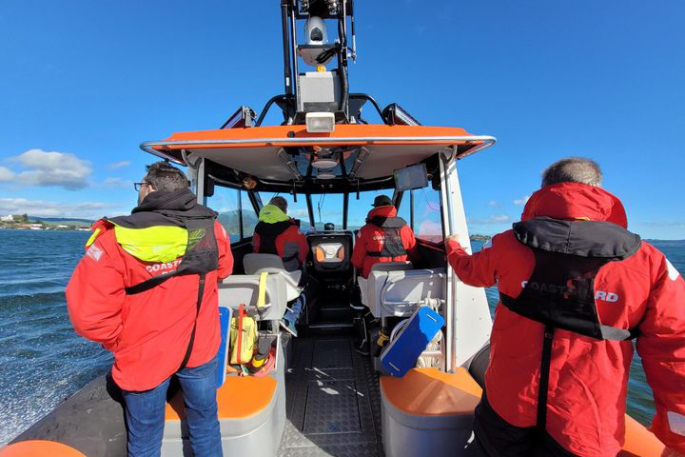Tuesday morning proved to be a busy one for Coastguard Rotorua Lakes volunteers, who successfully rescued two waka ama paddlers stranded on Mokoia Island.
The alarm was raised around 8.30am when the Coastguard was notified that the paddlers were missing after last being seen near the western shore of Lake Rotorua.
A volunteer from Coastguard Rotorua Lakes reported that five team members aboard the Rotorua Rescue vessel commenced a search off Ngongotahā. Shortly thereafter, police confirmed that both paddlers had reached safety on Mokoia Island. The Coastguard team then picked them up and transported them back to shore.
Skipper Jonathan Findon praised the safety measures taken by the paddlers, noting that they were wearing lifejackets when they encountered trouble.
“The rest of the paddling group raised the alarm as soon as possible,” he said.
Findon said the paddlers struggled to return to shore due to strong south-west winds that pushed them further offshore toward the island.
“Lake Rotorua is partially sheltered by hills on the western side, meaning that if you venture beyond this shelter, it can be difficult to make it back.”
 Map showing search area of Coastguard Rotorua Lakes volunteers. Image: Supplied.
Map showing search area of Coastguard Rotorua Lakes volunteers. Image: Supplied.
This incident marks the third rescue involving kayakers or waka ama in recent days. Over the past five days, Coastguard volunteers across New Zealand have rescued seven individuals using non-motorised watercraft. For instance, Coastguard Queenstown retrieved two kayakers from a rocky shore on Lake Wakatipu on Friday, and Coromandel-based volunteers rescued three kayakers in challenging conditions off Whangamatā on Saturday.
In light of these recent events, Coastguard Rotorua Lakes is emphasizing key safety tips for anyone exploring the lakes around Rotorua.
“Our advice is that if you’re heading out in the changeable spring winds, always ensure you’re wearing a lifejacket, checking the weather forecast, carrying two forms of waterproof communication including a charged mobile phone, and letting someone know where you’re going and when you’ll return,” said Findon.
“Plan a route that’s within your experience and confidence levels. In the event of an emergency call 111 and ask for Police.”



0 comments
Leave a Comment
You must be logged in to make a comment.